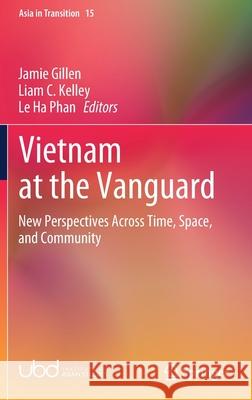Vietnam at the Vanguard: New Perspectives Across Time, Space, and Community » książka
topmenu
Vietnam at the Vanguard: New Perspectives Across Time, Space, and Community
ISBN-13: 9789811650543 / Angielski / Twarda / 2021 / 257 str.
Vietnam at the Vanguard: New Perspectives Across Time, Space, and Community
ISBN-13: 9789811650543 / Angielski / Twarda / 2021 / 257 str.
cena 563,56
(netto: 536,72 VAT: 5%)
Najniższa cena z 30 dni: 539,74
(netto: 536,72 VAT: 5%)
Najniższa cena z 30 dni: 539,74
Termin realizacji zamówienia:
ok. 22 dni roboczych.
ok. 22 dni roboczych.
Darmowa dostawa!
Kategorie:
Kategorie BISAC:
Wydawca:
Springer
Seria wydawnicza:
Język:
Angielski
ISBN-13:
9789811650543
Rok wydania:
2021
Wydanie:
2021
Numer serii:
000782157
Ilość stron:
257
Waga:
0.56 kg
Wymiary:
23.39 x 15.6 x 1.75
Oprawa:
Twarda
Wolumenów:
01
Dodatkowe informacje:
Wydanie ilustrowane











